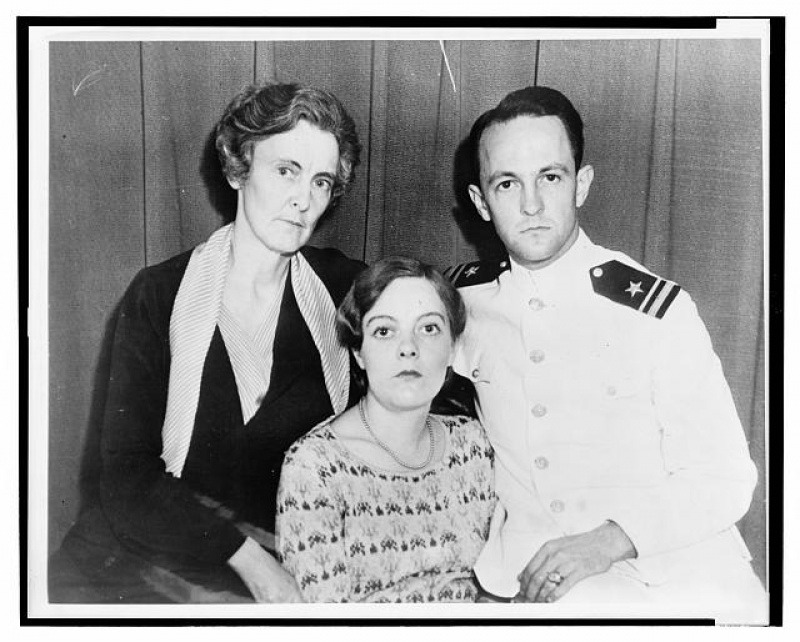
In the early years of the 20th century, at a time when the U.S. Navy dominated Hawai’i, Americans thought of the islands as their paradise in the Pacific. But in September 1931, an explosive incident shook the semblance of tranquility and exposed the racial tensions roiling beneath the surface.
Thalia Fortescue Massie, the troubled young wife of a Navy lieutenant, claimed that a group of Hawaiians had raped her on the Ala Moana, a lonely beach road leading from Waikiki to Honolulu. Five young men were arrested – two Hawaiians, two Japanese, and one Chinese. Despite evidence that the defendants couldn’t have committed the crime, a mixed race jury deadlocked and the suspects were released on bail. Hawaiians were outraged, believing the rape charges a sham. White sailors beat one of the rape defendants so badly he almost died.
Into this explosive atmosphere, Massie’s strong-willed mother, Grace Hubbard Fortescue, made a dramatic entrance. When one of the rape defendants was found dead in the back seat of Fortescue’s car, news of the “honor slaying” unleashed a torrent of racist invective from the mainland in support of Fortescue. Though she was eventually tried and convicted of manslaughter, her sentence was commuted to a single hour. The Massie affair inflicted a wound on the psyche of the Hawaiian people that has yet to heal [text via]


